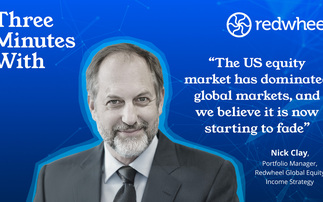Matthew Jennings, Investment Director at Fidelity, analyses the factors behind the recent outperformance of value over growth in the UK - despite value lagging globally
A lot of focus recently has been on the outlook for value investing relative to growth. The subtext often seems to be that value might finally be ready for its moment in the sun, after years of being left in the shade by the growth style.
Although value did indeed spectacularly underperform growth in 2014 and 2015, since 2016 this has entirely reversed in the UK, and in fact value is now slightly ahead over five years.
However, looking at other global markets, it is easy to see why some might have the perception that value is yet to recover.
For the past two years, value has been winning in the UK, but nowhere else. It
is highly unusual for there to be a directional difference in style performance between two such diverse markets. So what's going on?
A political red herring
Taken in isolation, one would expect UK political worries to push investors towards defensive growth stocks rather than more cyclical value areas.
And when we are talking about the UK market overall, we are generally talking about large, global companies, not likely to be impacted much by domestic UK politics.
The types of large global companies we have listed in London vary considerably relative to those listed on other markets. It is these differences in sector weightings, rather than politics that help to explain why value has been outperforming in the UK but nowhere else.
Technologically challenged
The UK technology sector constitutes less than 1% of the index - the lowest of any major global market (the US has 25%, for example). The biggest UK technology stocks are the likes of Sage and Micro Focus; although they may have their attractions, they are not exactly household names leading the digital disruption of the global economy.
While we may not have much in the way of big tech brands in the UK, we have plenty of consumer brands owned by global groups such as Reckitt Benckiser, Diageo and British American Tobacco. Large-cap growth in the UK has been much more weighted towards these sorts of defensive consumer staples than disruptive tech. These stocks developed a strong correlation to the bond market, which helps to explain why they performed so well throughout 2014 and 2015, but also why they were so vulnerable to a de-rating as discount rates rose.
A lack of exposure to the digital economy narrative also explains partly why the UK index has lagged other markets. Along with consumer staples, the UK market boasts bucketfuls of commodities. Among the value sectors, this group has been a stand-out performer over the past two years.
Click here to read the full article from Matthew Jennings on the other anomalies haunting the UK value sector today.













